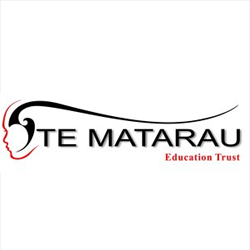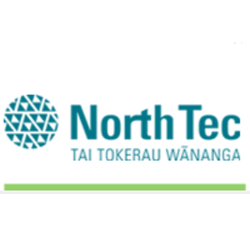
Enabling students to become life-ready, study-ready and work-ready in Te Tai Tokerau, Northland
Status
Completed: 9 November 2017
Project Details
A project to design regional solutions to address barriers to a tauira (learner) completing their study and moving into mahi (work). A collaboration between Te Matarau Trust and NorthTec.
Aims:
The primary aim of the project was to help learners to be life-ready, study-ready and work-ready.
Methodology:
The action research project used a kaupapa Māori research methodology, which featured:
- a literature review
- in-depth analysis of the data set
- interview with practitioners
- report and guidelines.
Team

Phil Alexander-Crawford
Te Matarau Education Trust
Cath Fraser
Te Matarau Education Trust
Rachael Dennis
Te Matarau Education Trust
Mark Ewen
NorthTecStatus
Funding
$25,000.00 (excl GST)
Key Findings
Findings on motivation
- The desire for work was the most common motivation for enrolling in tertiary study.
- 52% of learners planned to undertake more study at a higher level.
- Approximately half of the learners who responded want to stay in Te Tai Tokerau.
Findings on the challenges
- The majority of learners faced significant challenges to successfully completing their tertiary study.
- Study affordability and finances were an issue for approximately one third of our learners.
- Whānau and childcare commitments were identified as a major challenge to starting or completing their course of study for many of our learners.
- 38% of our learners didn’t have access to reliable transport.
- Approximately one in five learners had no drivers licence.
- 30% of learners did not have internet access.
- More than half our learners did not live in family owned homes and 37% were renting.
Findings on learners' study needs
- Additional support to develop literacy and numeracy skills and competencies was needed.
- Learners needed qualifications that are recognised in the workplace.
- They needed work experience.
- Access to transportation was a need.
- They also needed references and introductions to employers, or the social confidence to do this.
- They needed a culturally appropriate and relevant learning environment.
- Excellent teaching for a range of learning styles and preferences was also required.
Key Recommendations
Working committee | Develop a core working party to determine first level decision-making and to implement an action plan (November to December 2016).
Consultation | Consult on the action plan with immediate stakeholders (January to April 2017).
Action plan revision | Revise the action plan (May 2017).
Key agency involvement | Present the action plan and carry out final consultation with key agencies (June 2017 onwards).
Action plan priorities | Consider and implement the action plan's five top priorities, ie, partnerships and stakeholder engagement (priority 1), leadership (priority 2), learners and graduates (priority 3), staff capability (priority 4), inclusive learning environments (priority 5).
A report prepared by Philip Alexander-Crawford, Mark Ewen, Cath Fraser & Rachael Dennis.
(PDF, 7.4 MB, 48-pages).
- 9 November 2017
An A3, full-colour poster prepared by Philip Alexander-Crawford, Mark Ewen, Cath Fraser & Rachael Dennis.
(PDF, 3.9 MB, 1-page).
- 9 November 2017